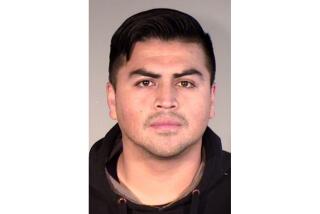Pornography and Police Power
- Share via
Everybody is against pornography, which may be why it was impossible for the Los Angeles County Board of Supervisors to resist Archbishop Roger M. Mahony’s appeal that it join his crusade against pornography. The problem is that the archbishop and the supervisors have different roles to play in our society.
Church leaders have every right to preach moral behavior to their faithful followers. Mahony regards pornography as “a very, very serious community problem,” and the Archdiocesan Commission on Obscenity and Pornography is particularly offended by the easy access to X-rated video-cassettes. That is their business.
We do not regard this as a major community problem. We do not regard this as a priority for police and the courts. We do not think that the supervisors should make this a priority for the sheriff, or feel bound to invite Atty. Gen. Edwin Meese III to establish a federal task force here. There are, of course, two crucial responsibilities of government: One is to protect the privacy of citizens so that salacious and unwelcome materials are not pushed onto them, and the other is to protect, absolutely and without exception, children from exposure to questionable materials.
There is good reason for limiting the police power in that way. To go further is to court infringement of fundamental rights of freedom of expression and communication. Yes, there are extremes in the enactment and portrayal of violence and explicit sexual activities that just about every-body would agree are without merit no matter how that is defined. But the effort to identify them places at risk marginal materials that would be seen by many as having merit. Pornography hunts inevitably do more harm than good, and are routinely converted into broad programs of censorship that serve basically the narrow interests and views of the censors. No court, no public body has proved to be a reliable judge of what is acceptable and what is not. The decision as to what to read, what cassette to rent, what film to view is best left to consenting adults. That is why the best defense is to use the police power solely to assure privacy and to protect children.


